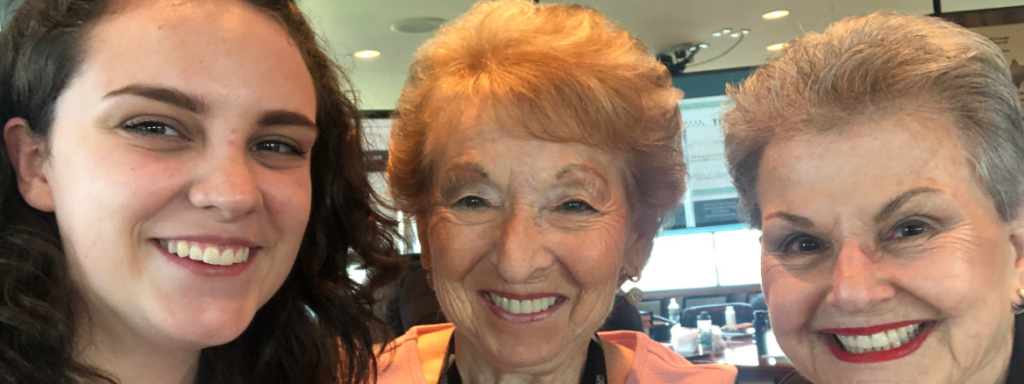Page 268 • (2,859 results in 0.067 seconds)
-

300 scientists from more than 20 countries work in teams, studying plant biology in ways that lead to economically and environmentally sustainable agriculture. Laurie-Berry started teaching at PLU in the fall of 2008. In addition to Plant Physiology, Laurie-Berry’s other classes include Plant Development and Genetic Engineering and a first-year writing class focused on global agriculture, world hunger, genetic engineering and related topics. “Our central question for the course is how agriculture
-

where I can, and I think that is all I can ask for. What skills are you gaining from this experience? I definitely feel like my professional development has gone up quite a bit in terms of what it means to work in a professional setting, and how to hold myself to a certain standard in a working way rather than an academic way. I definitely think that has been a bit of a struggle – shifting from being a student to “this is your job.” I’ve been trying to work on my time management skills, but it is a
-
1 – WINTER 2017 SENIOR EDITOR Kari Plog ’11 WRITERS Kari Plog ’11 Zach Powers ’10 Kevin Knodell ’11 Mark Albanese PHOTOGRAPHER John Froschauer VIDEOGRAPHER Rustin Dwyer HOMEPAGE ANIMATION Hans Fleurimont CONTRIBUTORS Andriana Fletcher ’10 Allison Rise ’12 Sonja Ruud ’12 Jacob Taylor-Mosquera ’09 COURTESY PHOTOS Wang Center Charles Bergman Theodore Charles ’12 Dom Calata ’08 EXECUTIVE CREATIVE DIRECTOR Simon Sung EXECUTIVE DIRECTOR OF CONTENT DEVELOPMENT Lace M. Smith WEB TEAM Logan Seelye Sam
-

a recent email, “My research has almost completely changed since the last time I checked in. My dissertation (as of right now) will examine the politics surrounding the development of Holocaust consciousness in the United States in the 1970s, 80s, and 90s. Last semester, I completed a paper about the first conference to focus women’s experiences during the Holocaust which took place in 1983. I learned just how controversial feminist analysis of the Holocaust seemed in the 80s, which was a key
-
Aid and the Non-Profit Industrial Complex in Enabling Trans* Ways of BeingIn the field of gender studies, the term ‘trans*’ as both an identity and as a way to interpret and approach the world has gained popularity in the past decade. Trans* is prepositionally and prefixally oriented and invokes movement across, through, or beyond binarized ways of thinking and being. Through its asterisk, trans* has the ability to reach out and attach itself to other ways of being, thereby creating opportunities
-
notice that the whole center of the lawn is muddy, and they look down with disgust at their dirty shoes. You’ll laugh, and you’ll only feel a little badly about it. We’re now walking alongside Xavier Hall, which houses the social sciences. For you, this building is not nearly as interesting as the trees and plants across from it. If you’re thinking “those trees look good for slacklining,” you’re right. You will have several friends who will be more than willing to string their lines up during the
-

the river to remove human influence. It was becoming increasingly clear that, as far as the Mississippi River was concerned, as a society, we have come too far with our technological advancements to ever go back. After this explanation, I remember thinking to myself there’s that ripple effect again. Saying thank you to Neal Day and Thebes Landing, we hopped back in the mini van and continued to Cairo, IL, a town several miles south. Cairo had experienced devastating flooding some years ago and had
-

. Kitchen, who passed away in 2014, was the co-founder of the Rainier Writing Workshop at PLU. She authored four essay collections: The Circus Train; Half in Shade: Family, Photography, Fate; Distance and Direction; and Only the Dance. She also wrote a novel, The House on Eccles Road, winner of the S. Mariella Gable Prize from Graywolf Press, as well as a critical study of William Stafford, Writing the World. She also edited (with Ted Kooser, former U. S. Poet Laureate) an anthology of bird poems: The
-

contenido , the content, the students discussed: Tradiciones indígenas ; indigenous traditions. Eventos — ella como testigo ; events as Menchú witnessed them. Descripciones de la violencia ; descriptions of the violence. Historias personales de la concientizacíon ; personal stories of how she developed a critical consciousness (or in millennial speak, they joked, how Menchú “got woke”). And, fittingly, género literario del testimonio ; literary genre of testimony, which privileges memories and
-
’ mother is also an intimate understanding of the U.S.-Mexican diaspora by the celebrated coeditor of the groundbreaking anthology This bridge called my back. Moraga’s memoir begins with her mother, Elvira Isabel Moraga, who as a child, along with her siblings, was hired out by her own father to pick cotton in California’s Imperial Valley. The lives of Cherríe and her mother, and of their people, are woven together in a story of critical reflection and deep personal revelation as Moraga charts her own
Do you have any feedback for us? If so, feel free to use our Feedback Form.


